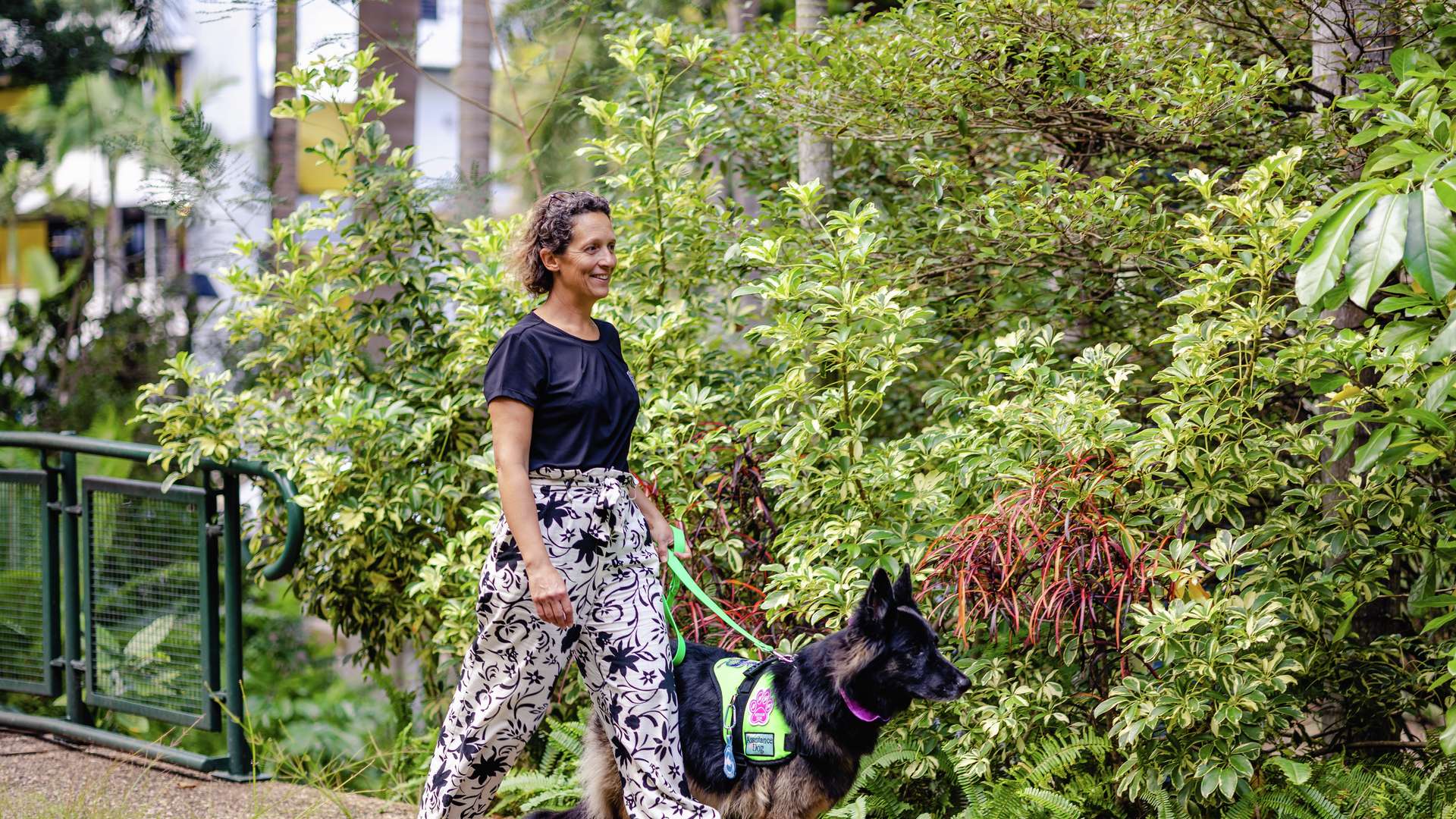Accessibility and Equity

Accessibility and Equity provides individualised services, free resources and assistive technology, confidential advice and advocacy to prospective and current students. Whether your condition is permanent, fluctuating, or temporary, we will work directly with you to ensure that the right support is in place. Students can register for support at any time during their studies, but it can help to register early to ensure that arrangements are in place for each term.
We support any CQU TAFE or higher education student whose studies, research or training may be impacted by their disability, illness, medical or mental health condition. Supports can also be put in place for temporary conditions such as pregnancy. Students requiring support will need to register with the service.
How to Register
- Download the Student Registration form or the Carer Registration form and complete the disclosure section.
- Consult CQU's Student Handbook and review information relevant to your course, including the course learning outcomes, course structure, and inherent requirements in the Getting Started tab.
- Talk to your treating health professional about your studies and course requirements. On the registration form, your Treating Health Professional will need to:
- Identify your disability, illness, injury or medical condition
- explain how your disability, illness, injury or medical condition may impact your studies and/or training
- recommend specific adjustments to assist you in completing all aspects of your coursework
- Email your completed Student Registration form back to accessibility@cqu.edu.au with accompanying documentation (if applicable). You will be contacted to make an appointment to speak with an Accessibility Consultant.
If you are unsure whether you should register with the Accessibility and Equity service, please contact us for a confidential discussion at accessibility@cqu.edu.au or via phone (07) 4930 9456.
Find out more
Any information you provide to us about your disability, illness, medical or mental health condition is confidential and can only be shared with your permission. At the first appointment, your Accessibility Consultant will review your registration form and consult with you to identify services, resources, practical modifications to assessments and other reasonable educational adjustments that can assist you to meet your academic and training goals. They will develop an Accessibility Plan with you listing the reasonable adjustments the university will apply during your studies. Your Accessibility Consultant will touch based with you annually to review your plan or more often as needed.
Support is tailored to your individual needs and circumstances as well as the recommendations provided by your Treating Health Professional. Some examples of reasonable educational adjustments include alternative exam conditions, assessment modifications, time extensions for assessments, timetable adjustments, academic support assistance, assistive technology and equipment. Your Accessibility Consultant will work with you throughout your studies to implement and review reasonable education adjustments. They may also need to confer with academic staff to implement specific adjustments. All support and assistance is free for registered students.
Your Accessibility Plan is developed between you and your Accessibility Consultant. It lists the reasonable adjustments the university will put in place as well as your rights and responsibilities. The Accessibility Plan can be shared with relevant staff with your permission.
Frequently Asked Questions
Your Accessibility Consultant will discuss options for sharing your Accessibility Plan during your registration appointment. All medical information supplied to the service will remain confidential.
It is important to understand all course requirements including residential schools and compulsory work-integrated-learning (WIL) professional placements as soon as possible, preferably prior to enrolment. Decisions about alternative arrangements/assessments can only be made by the relevant academic staff. However, an Accessibility Consultant may advocate on your behalf if required and support you to participate in your chosen course. Many courses have Inherent Requirement documents to guide students in making decisions about their suitability for different courses.
If you would like to arrange for a support person (parent, partner, friend, support worker or treating health professional) to speak on your behalf or make enquiries about the support you are receiving from Accessibility and Equity, you will need to sign a release of information form to provide your consent and contact details of your support person.
Yes. The Accessibility and Equity service supports students who may require temporary educational adjustments, including students who are pregnant or breastfeeding.
Communication with a Accessibility Consultant can be in person, by phone, email, Skype or videoconference. Staff can arrange for interpreters to be available if required. You are welcome to ask for a support person to be present to help you answer questions at all times.
It is important to understand your options by talking to the Advocacy Support Officer which is a free and confidential service available to all students. The Accessibility and Equity service will assist as required to resolve the matter. To contact the Advocacy Support Officer directly, email student-advocacy@cqu.edu.au or phone 07 4930 6880.
Contact the team in the first instance for some further advice about your options. Accessibility Consultants can guide you with options and determine if registering for ongoing support would be beneficial. Accessibility Consultants work closely with academic staff and the education scheduling team and can provide on-the-spot advice for urgent situations.
If you are unsure whether you should register with the Accessibility and Equity service, please contact us for a confidential discussion at accessibility@cqu.edu.au or via phone (07) 4930 9456.
